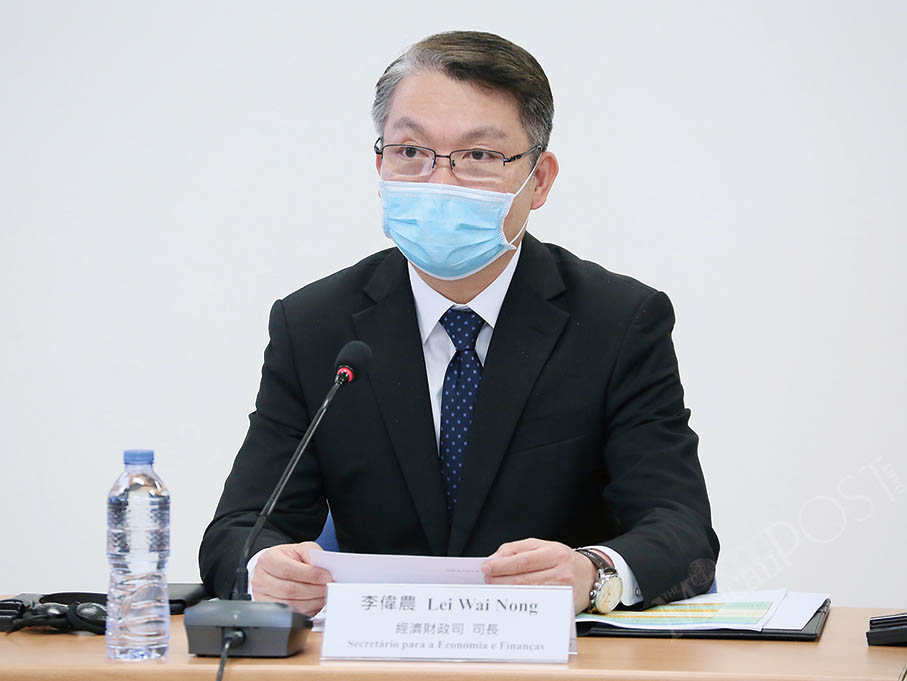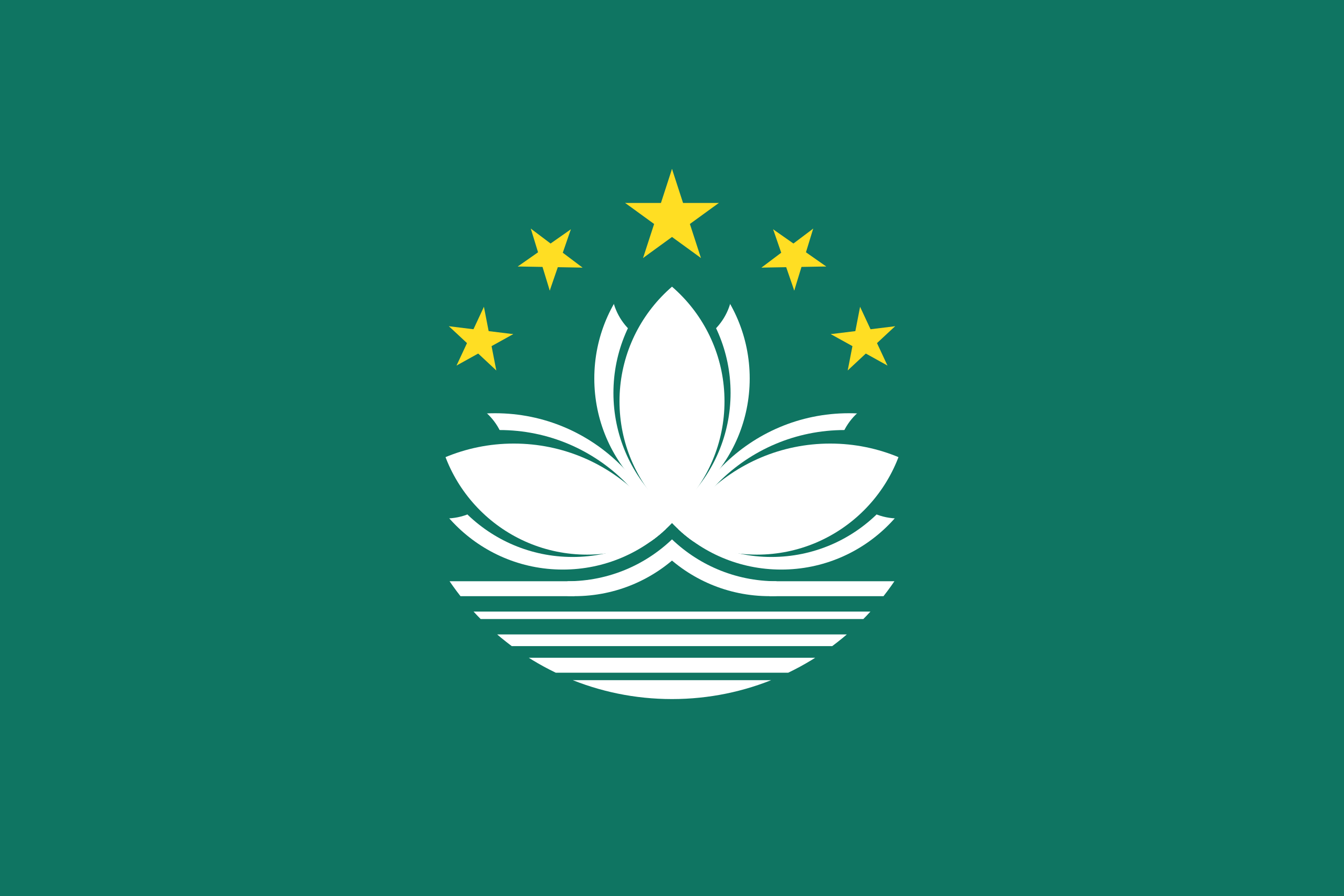Staff, freelancers to get 15,000 patacas, 5,000 pataca top-up for smartcards
Addressing yesterday’s daily press conference about Macau’s novel coronavirus (COVID-19) situation, Secretary for Economy and Finance Lei Wai Nong announced the government’s second round of financial support measures for residents, businesses and their employees as well as the self-employed, in response to the deteriorating COVID-19 impact on the local economy caused, among other things, by the drastically tightened entry and quarantine measures by Hong Kong and Guangdong.
The measures include a subsidy of 15,000 patacas to local employees and self-employed residents, a payment of 10,000 patacas to wet market stall lessees and taxi drivers, a payment of up to 200,000 patacas to enterprises, and a payment of 6,656 patacas to unemployed local residents enrolled in a government-run occupational training course.
Both permanent and non-permanent residents will benefit from the support measures. Non-resident workers are not covered by them.
In addition, residents’ consumption promotion smartcards issued by the government will get a 5,000 pataca top-up for spending between August and December, in addition to the previously announced 3,000-pataca consumption subsidy to be used between next month and July.
The second round of financial support measures will be financed by a 10-billion-pataca ad hoc fund managed by the public Macau Foundation (FM).
Lei said that the government will submit a supplementary budget bill to the legislature for debate and vote later this month with the aim of implementing the new financial support measures from next month. Observers expect the bill to pass smoothly through the legislative process.
The Legislative Assembly (AL) passed the outline of the government’s 2020 budget amendment bill late last month, the first budget falling back on the special administrative region’s sizeable financial reserves. The bill, which is now being reviewed in detail by one of the legislature’s standing committees before its second and final reading and vote, proposes to transfer 38.9 billion patacas from the government’s financial reserves of 577 billion patacas to this year’s budget.
Extra support
Lei said that the second round of financial support measures aimed to offer additional support to residents, businesses and their employees as well as freelancers. He described the second-round measures as “supplements” to the government’s first round of support measures that were rolled out earlier this year to tackle the adverse impact of the COVID-19 epidemic on the local economy. The policy secretary pledged that the government will do its best to relieve residents’ hardships as soon as possible so as to “boost civil society’s confidence, unity and stability”.
According to Lei, local employees and free lancers registered with the Financial Services Bureau (DSF) for the government’s personal income tax (known as “imposto profissional” in Portuguese will be entitled to a subsidy of 15,000 patacas. The subsidy will not cover the city’s around 35,000 public servants and those employed by the private sector with a monthly salary of at least 60,000 patacas, according to Lei, who said that there are some 15,000 local employees in Macau with an annual salary of at least 720,000 patacas. The government expects the 15,000-pataca payment to cover 260,000 local employees, costing the Treasury some 3.9 billion patacas in total, Lei said.
The 15,000-pataca subsidy will be paid to the beneficiaries in one go, based on the calculation of 5,000 patacas per month for three months.
Lei said that the local government came to the conclusion that the monthly subsidy should be 5,000 patacas, based on 25 percent of last year’s median monthly income of 20,000 patacas among local employed residents.

Secretary for Economy and Finance Lei Wai Nong addresses yesterday’s press conference at the Health Bureau (SSM) about the city’s novel coronavirus (COVID-19) situation. Photo: GCS
Tricycle riders, street vendors
In addition, wet market stall lessees, street vendors and tricycle riders will receive a one-off subsidy of 10,000 patacas, according to Lei.
Cabbies who rent their taxi will also be entitled to a one-off subsidy of 10,000 patacas, Lei said.
According to Lei, companies will be entitled to a one-off subsidy of between 15,000 and 200,000 patacas depending on the number of workers they are employing.
The maximum subsidy that an employer who runs a number of companies can receive is one million patacas, according to Lei.
Lei pointed out that public utilities, public bus companies, the LRT operator and the city’s casino operators and financial companies, schools and universities as well as social service organisations are not covered by the financial support measure for companies.
Lei also said that the government will also pay a subsidy to local residents who join government-run training courses. Unemployed local residents who are enrolled in a government-run occupational training course will receive a subsidy of 6,656 patacas. After completing the training, they will be provided with employment-matching services, Lei said.
Employed local residents who are enrolled in a government-run training course aimed at enhancing their occupational skills will receive a subsidy of 5,000 patacas.
According to Lei, each employer will only be allowed to recommend a maximum of five employees to take the training courses.
Lei said that the government’s second phase of its consumption subsidy scheme consists of a 5,000-pataca top-up, in addition to the first-round 3,000-pataca government-issued smart cards. The cards will be the same in both rounds of the consumption promotion campaign.
Both permanent and non-permanent residents are entitled to the consumption subsidy scheme.
The registration period of the first-phase consumption subsidy scheme (3,000 patacas) ended yesterday. Those who have registered for the scheme are slated to pick up their consumption smart cards between next Tuesday and April 30 at a place they have selected when registering. Residents must use the 3,000 patacas between May 1 and July 31. Each day they can only spend 300 patacas.
The government has said that it expects to spend 2.2 billion patacas on the first-phase consumption scheme. Lei said yesterday that the government expects to spend 3.6 billion patacas on the second phase of the scheme.
The 3.6-billion-pataca consumption subsidy is not part of the 10-billion-pataca fund for the second round of the government’s financial support measures.
Lei said that if a resident does not use all the 3,000 patacas in the first phase, the remainder will not be carried forward into the second phase, as the government aims for residents to boost local consumption by spending the subsidy within a certain period of time.
Lei said the government has come to the conclusion that the second phase of the consumption subsidy scheme is needed to tackle the economic predicament caused by the very low number of visitors to Macau currently.
Lei insisted that the two rounds’ consumption subsidy of 8,000 patacas was unlikely to push up the city’s inflation rate.








